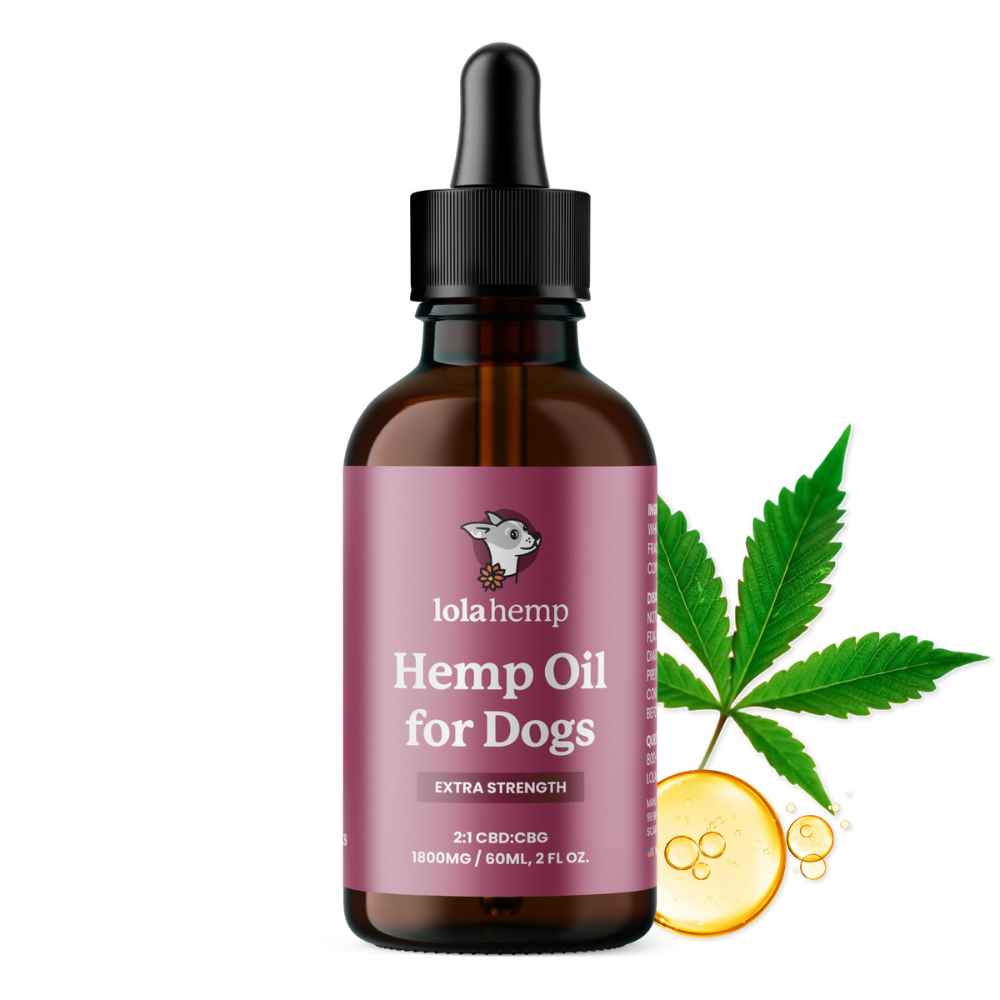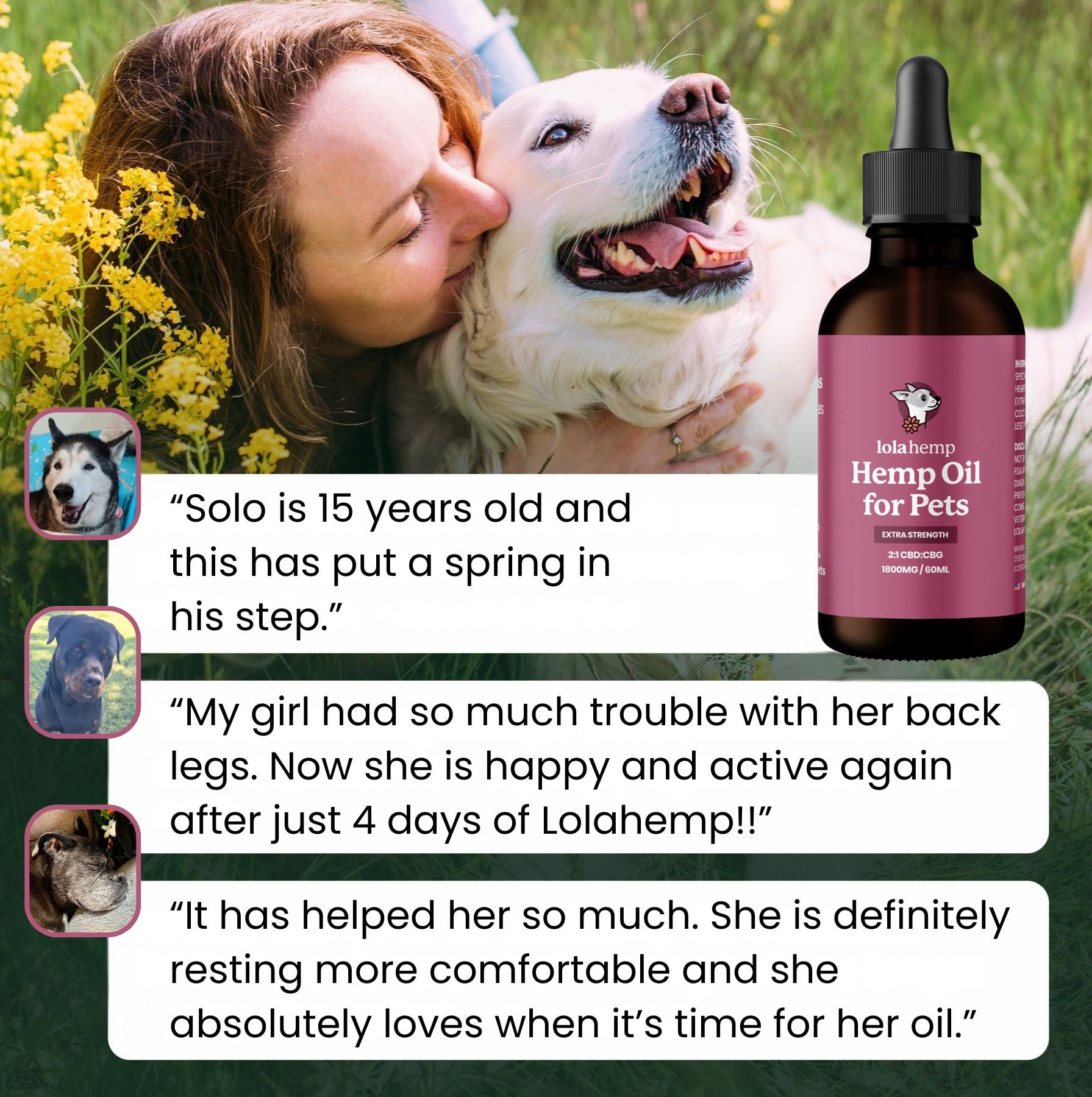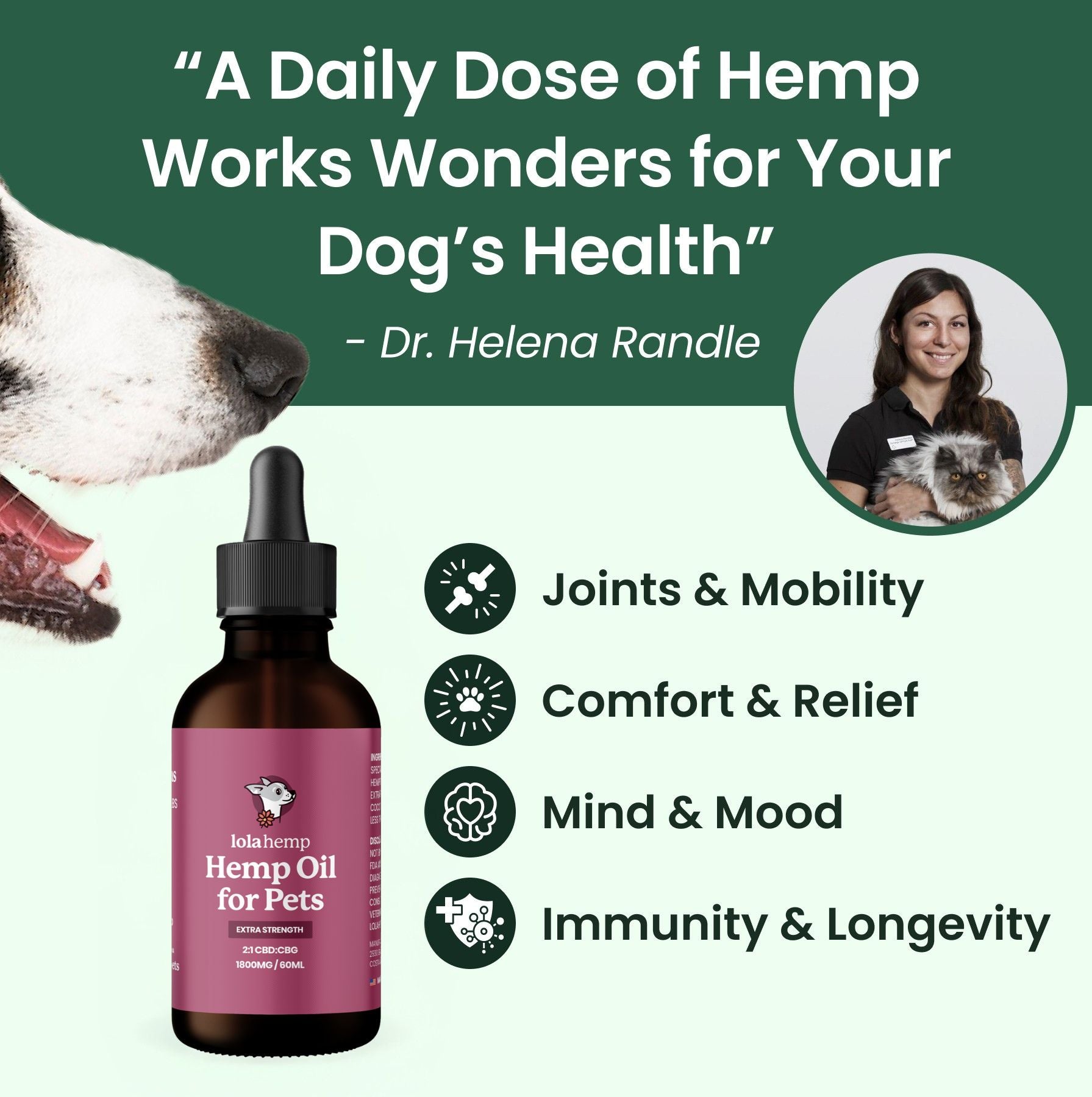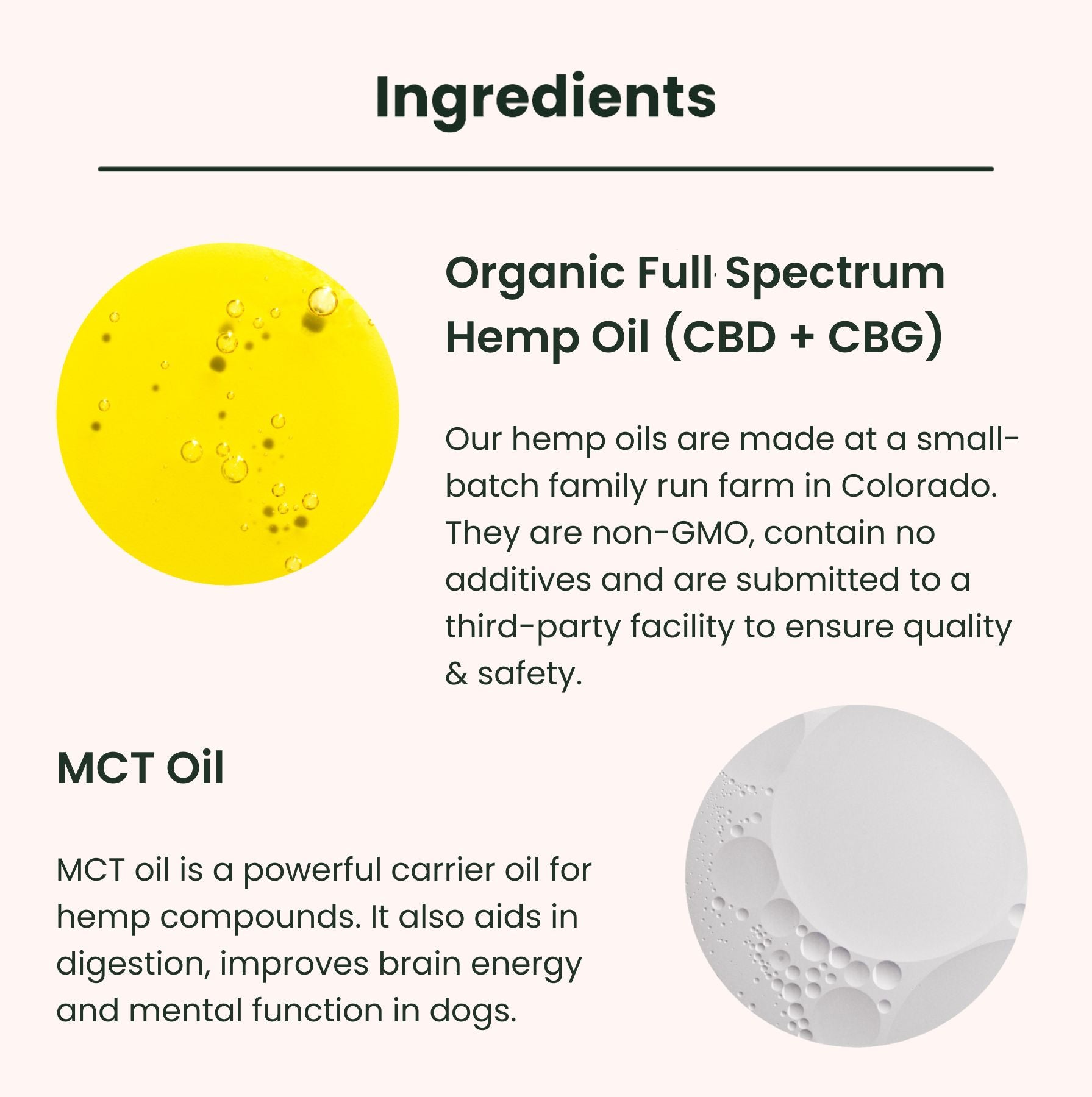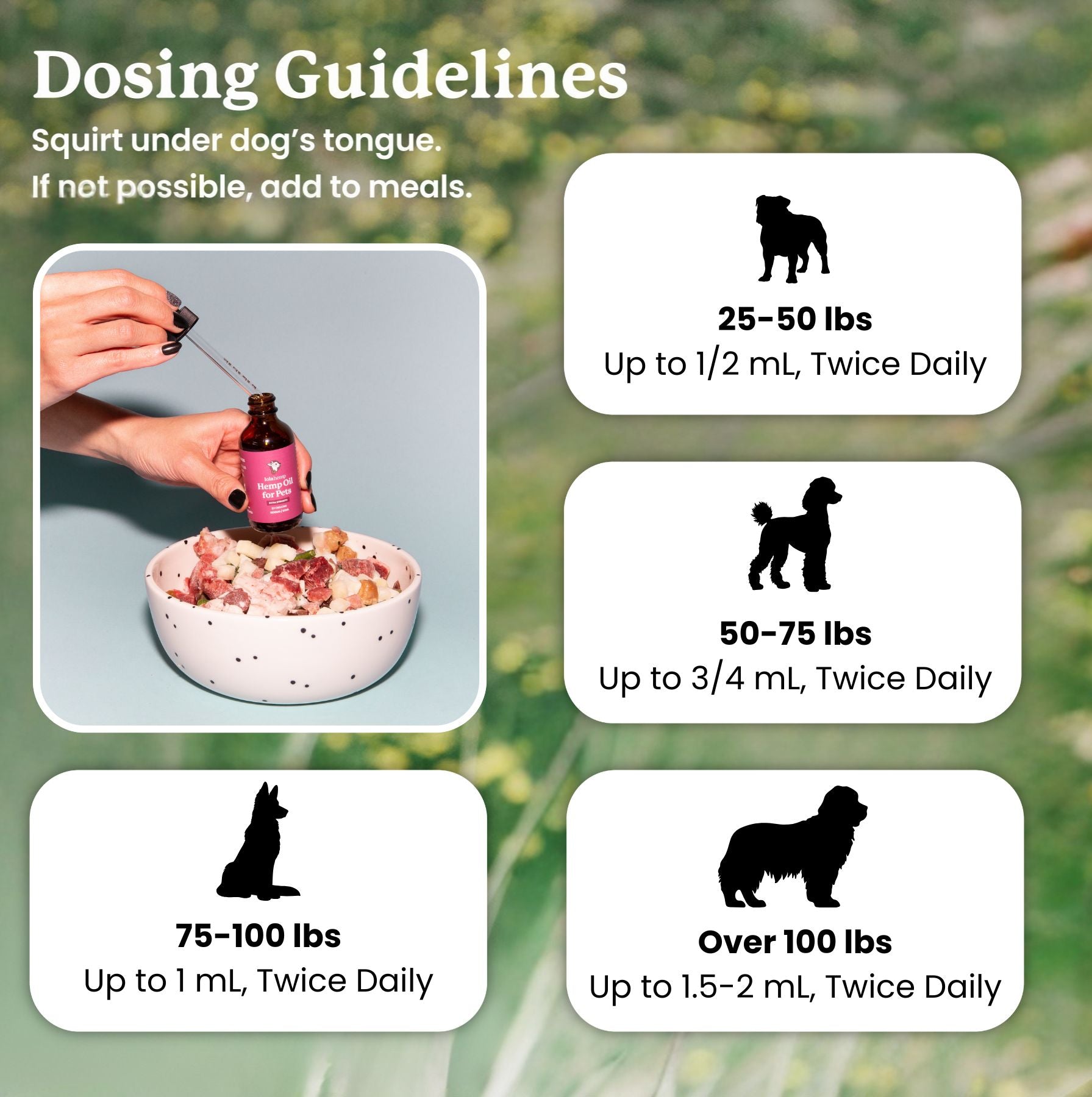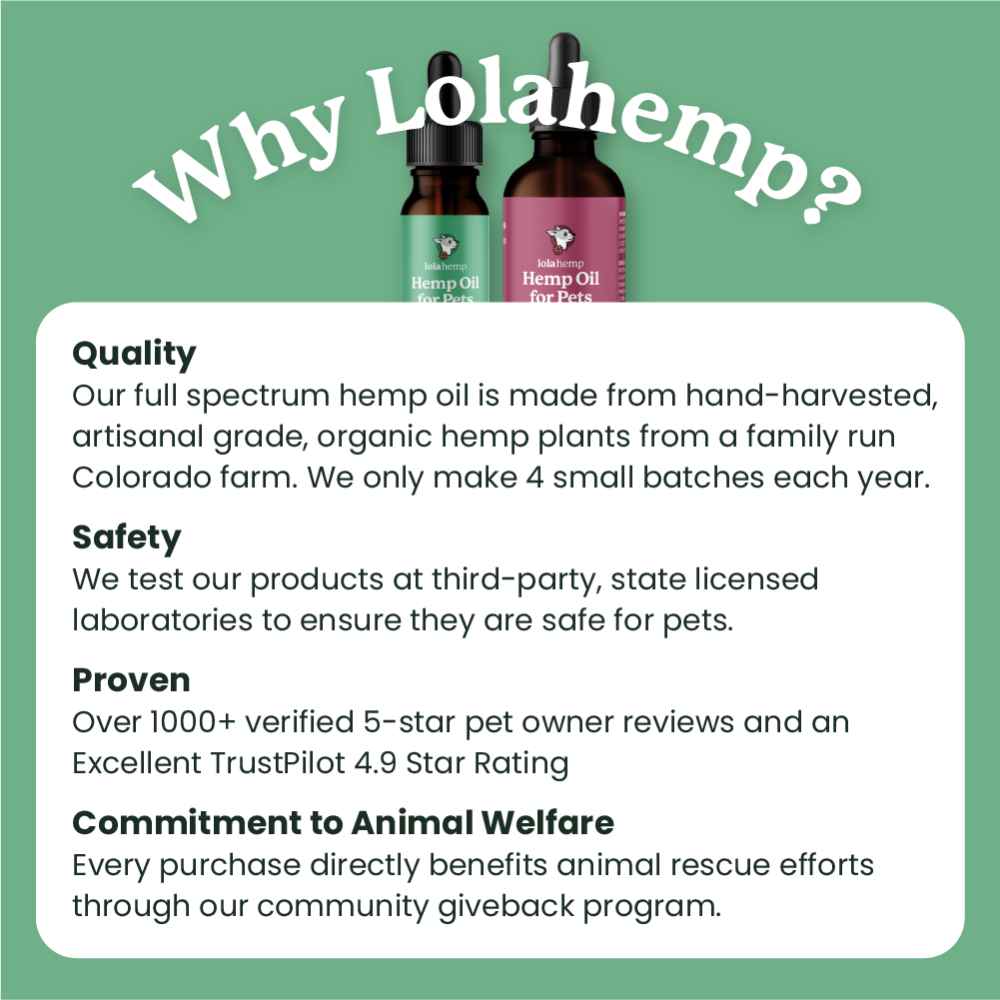As pet owners, we always look for ways to enhance our dogs' well-being. In recent years, cannabinoids like CBD oil have gained popularity in the pet wellness community.
However, there's another cannabinoid that’s starting to catch attention: CBG (cannabigerol). Known as the "mother of all cannabinoids," CBG is the precursor to CBD and THC and offers potential benefits for dogs. In this article, we’ll explore the possible advantages of CBG oil for dogs, along with how Lolahemp's Extra Strength Full Spectrum CBD Oil—which contains CBG—can support your pet's wellness.
What is CBG Oil?
CBG, or cannabigerol, is a cannabinoid found in the cannabis plant, though it is present in smaller amounts than CBD or THC. CBG is known for being a precursor compound in the plant, from which other cannabinoids, such as CBD and THC, are synthesized.
When extracted and concentrated into CBG oil, it may offer potential benefits when used by pets. CBG interacts with the dog's endocannabinoid system (ECS), which is responsible for regulating key physiological processes like mood, appetite, and pain sensation. This interaction may provide support for various aspects of your dog's health.
Benefits of CBG Oil for Dogs
While research on CBG oil for dogs is still limited, some pet owners have started exploring its potential uses. Here are some ways CBG oil might be beneficial:
- Promotes a Sense of Calm: CBG is thought to have potential calming effects, which may help dogs who experience stress or anxiety. While more research is needed, some pet owners use CBG oil to help their dogs manage stressful situations like storms or separation anxiety.
- Supports Joint Health: CBG’s potential anti-inflammatory properties may help support dogs with joint discomfort or mobility issues. It’s important to remember that the effects of CBG will vary from dog to dog, and it should be part of a holistic approach to health.
- May Aid Digestive Health: Some believe CBG may support normal digestion in dogs, particularly when they experience discomfort or changes in appetite. While these effects are still being studied, some dogs may benefit from its potential to promote digestive balance.
- Supports the Immune System: There is ongoing research into CBG’s effects on the immune system. While it’s not a substitute for veterinary care, CBG may play a role in supporting overall immune function.
- Neuroprotective Potential: Some studies suggest CBG could have neuroprotective properties, which may help to support healthy brain function in dogs, especially as they age. However, more research is needed to confirm these potential benefits.
How to Administer CBG Oil to Your Dog
The dosage of CBG oil depends on your dog’s size, health condition, and the product you’re using. It’s recommended to start with a small amount and gradually increase the dosage as needed. Always consult with a veterinarian before adding any new supplement to your dog’s routine to ensure it’s appropriate and safe.
CBG oil is typically available in tincture form, making it easy to administer by adding it directly to your dog's food or water. Be sure to follow the manufacturer’s instructions for dosage and monitor your dog for any signs of discomfort or changes in behavior.
Is CBG Oil Safe for Dogs?
When used properly, CBG oil is generally considered safe for dogs. As with any supplement, it’s essential to use the correct dosage. Overuse may lead to mild side effects, such as drowsiness or digestive upset. Always monitor your dog after introducing CBG oil, and if you notice any adverse reactions, discontinue use and consult your veterinarian.
Conclusion
In conclusion, while more research is needed, CBG oil may offer potential benefits for dogs, such as supporting relaxation, joint comfort, and overall wellness. Lolahemp’s Extra Strength Full Spectrum CBD Oil, which contains both CBG and CBD, is designed to support your dog’s overall health. If you’re interested in adding CBG oil to your dog’s routine, always consult with your veterinarian to determine the best approach for your pet.
Frequently Asked Questions about CBG Oil for Dogs
What is CBG oil and how does it differ from CBD oil?
CBG oil contains cannabigerol, the precursor to CBD and THC. It’s found in smaller amounts in the hemp plant but interacts with different receptors in the endocannabinoid system. CBG may complement the effects of CBD when used together.
Is CBG safe for dogs?
Yes, when used in appropriate doses, CBG is considered safe for dogs. Always start with a low amount and monitor for side effects like sleepiness or stomach upset.
Can I give my dog CBG and CBD together?
Yes. Combining CBG and CBD may enhance the overall effect, known as the “entourage effect.” Many full-spectrum oils, including Lolahemp’s Extra Strength CBD Oil, include both cannabinoids for balanced support.
What are the potential benefits of CBG for dogs?
CBG may support calm behavior, joint comfort, digestive health, and immune function. Research is ongoing, but many pet owners report positive results.
How should I give my dog CBG oil?
Most pet owners administer CBG oil directly into the mouth or mix it with food. Follow label instructions or your veterinarian’s dosage recommendations.

